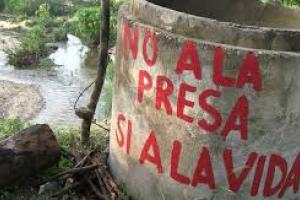By the World Rainforest Movement
America (general)
Bulletin articles
13 September 2005
Illegal logging has possibly been the most debated issue in the forestry sector at international level recently and has been attracting increasing attention in the last ten years. Governments, timber industries, donor agencies and NGOs seem to agree that it is one of the most important issues to be addressed. It also has been discussed in some high profile meetings.
Other information
15 June 2005
Let us make no mistake. When the IMF talks about a “favourable environment,” it is referring to business, to a favourable environment for direct foreign investment through operations on the stock exchange, or indirect foreign investment through the operation of transnational companies.
Bulletin articles
15 June 2005
The Inter-American Development Bank (IDB) does not have a specific forest policy or sector strategy, as they claim they have covered forests in other policy and strategy documents, including those on rural poverty reduction, rural finance, agriculture, water resources, coastal resources and energy. The IDB’s current draft of its Environment and Safeguards Compliance Policy also touches on protection of natural habitats.
Other information
26 January 2005
Organizations and representatives from social movements from Eastern and Western Europe, as well as North and South America came together in Buenos Aires, Argentina over the first half of December, 2004 to tell the United Nations Framework Convention on Climate Change’s tenth Conference of the Parties (COP 10) to ban GE trees from the Kyoto Protocol —the international global warming treaty.
Bulletin articles
26 November 2004
Forestry scientists working on GM trees often point to the number of field trials of GM trees worldwide as evidence that the technology is increasingly accepted. In fact the reverse is true. As the number of experiments increases so does the strength of the resistance against GM trees.
Bulletin articles
28 August 2004
Tropical forests have been inhabited for thousands of years by communities that made use of them for subsistence in many ways, including agricultural activities. It was a type of agricultural production that took into account crop interactions and was carried out in such a way that not only did it prevent destruction of the forest but was able to be in harmony with it. The communities promoted areas where a diversity of species useful for human consumption were concentrated, within a diverse scenario, but which did not undermine the forest’s biological bases.
Bulletin articles
28 August 2004
Agriculture and cattle-raising are direct causes of deforestation. However they should be looked at in depth in order to be able to understand what promotes them, who benefits from them, how they arise. It may be said that it is a funnel-like process. What is most visible is on the outside, the disappearance of the forest as a consequence of these activities.
Other information
28 August 2004
Bananas, in terms of gross value of production, are the world’s fourth most important food crop after rice, wheat and maize. Latin America dominates the world banana economy, where they are cultivated mostly in large mono-crop plantations.
Other information
19 August 2003
The idea of a series of protected natural areas joined by surrounding buffer zones where low intensity activities take place is no doubt attractive. It could be a scheme that might even guarantee landscape or habitat continuity and avoid the fragmentation caused by industrial activities such as large-scale agriculture and tree plantations, urbanization or works such as roads and dams. This is what the text of the Meso-American Biological Corridor (MBC) project proclaims.
Bulletin articles
31 July 2003
The Second Meso-American Forum against Dams "For the Peoples' Water and Life" was held from 17 to 20 July in Honduras. One hundred and fifty delegates participated, "concerned over the increasing invasion by dam-building projects imposed by large transnational companies and multilateral bodies, in partnership with the corrupt governments of the Meso-American region."
Declarations
20 July 2003
Only available in Spanish -
La Esperanza Intibuca, Honduras
Del 17 al 20 de julio del 2003
Preocupados por la creciente invasión de proyectos de construcción de represas que vienen imponiendo las grandes transnacionales y organismo multilaterales en alianza con los gobierno corrupto de la región Mesoamericana, nos reunimos alrededor de 150 compañeros y compañeras afectados, desplazados y desplazadas, viuda, huérfanos y sobrevivientes de la represión desatada por la construcción de represas.


